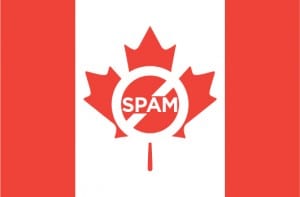 The caricature of a typical Canadian is hockey-mad and polite to a fault, but that image – true or not – may change when the world’s toughest anti-spam law comes into effect in Canada on July 1. No more Mr. Nice Canuck.
The caricature of a typical Canadian is hockey-mad and polite to a fault, but that image – true or not – may change when the world’s toughest anti-spam law comes into effect in Canada on July 1. No more Mr. Nice Canuck.
The relationship between Canada and the U.S. has been so cozy for so long that it’s sometimes difficult for Americans to think of Canada as a different country, with its own laws. But this one is pure maple. Canada is the last of the G20 countries to enact anti-spam legislation, the requirement of which is part of international agreements. But they are taking it to a new level — experts describe the Canadian Anti-Spam Law (CASL) as the broadest legislation of its kind in the world.
Why should you care if you live outside Canada? Because the law doesn’t care where the email, phone call, voicemail, text message, social media communique or other type of “commercial electronic message” (CEM) originates. It only cares where the device upon which it is received is located.
Your home-country client may ask you to contact just a very few top-tier business journalists to offer an interview with its visiting CEO. That’s a possible violation. Or the client directs you to blast out its significant acquisition news to the world, and you’ve got a Canadian media list. That too is likely a violation. The client wants you to identify the most influential mom-blogger in Canada and send her a note offering a couponing deal for free samples for her readers. That is a violation.
And the penalties are severe — as high as $1million per day for individuals and $10million per day for companies. Officers and directors of violating companies can also be held personally liable.
So, it’s July 1 and you want to respect Canadian law. You want to send an email to someone in Canada from whom you do not have consent. You phone them to ask for consent. Out of the gate, that’s a violation. You met Justin Bieber at South by Southwest and traded business cards with him. (Pretend, for the sake of this example, that Justin Bieber carries a business card and you didn’t flee in terror when you saw him.) That too is a possible violation.
Your trouble is compounded if any message you send through any digital medium does not contain a clear opt out button. In addition to explicit opt-in permission from the recipient, every CEM must have the opt-out option.
It’s hopeless, you think. We should just forget Canada ever existed. That’s not the case. Under CASL, there are situations that constitute expressed or implied consent and/or exemption. The biggest one for us is called “conspicuous publication.” That means, if a media outlet publishes the name and contact information of its employees on its website that creates an exemption from consent.
But not all media outlets do that, so we’ll still need to keep an up-to-date database of all our contacts, whether media, influencer, stakeholder, or business prospect, and the status of their consent to be contacted.
Spam is a huge, expensive global problem that gums up digital communications, and facilitates malware and other nefarious practices. Canada is late to the game of regulating it, and has created a clunky, harsh law that will likely impede useful commerce if enforced. But you can be sure that sometime after July 1 – Canada Day – there will be a high-profile case prosecuted so the government can show it means business. So, if you have to go to great pains to contact anyone in Canada after July 1, well, as South Park once said, Blame Canada.


